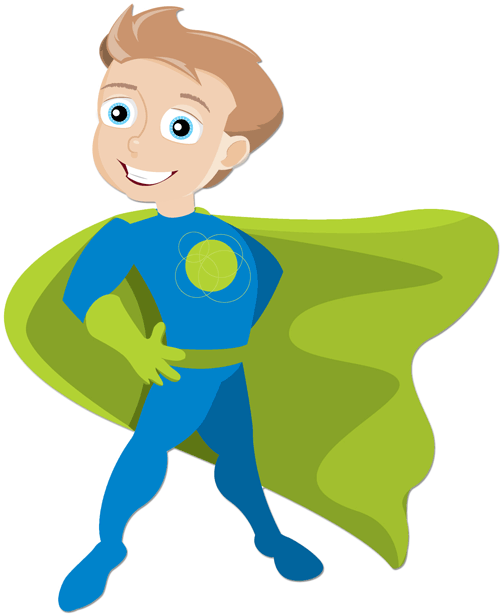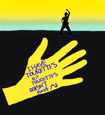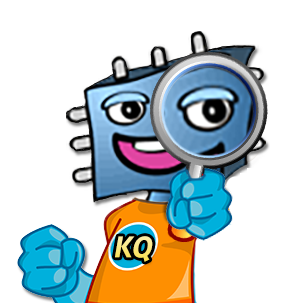What is Tourette syndrome and how do I recognize someone who might have Tourette?


What should you know?
Tourette syndrome is a condition of the nervous system. It causes people to have “tics”.
Tics are sudden twitches, movements, or sounds that people do repeatedly. People who have tics cannot stop their body from doing these things. For example, a kid might keep blinking over and over again. Or, a kid might make a grunting sound unwillingly.
Having tics is a little bit like having hiccups. Even though you might not want to hiccup, your body does it anyway. Sometimes people can stop themselves from doing a certain tic for awhile, but it’s hard. Eventually the person has to do the tic.
Just because someone has a tic does not mean they have Tourette syndrome. To get diagnosed with Tourette, you have to have both movement tics and voice tics, and you have to have some tic symptoms for at least 1 year.
Knowing the facts can help you understand what it is like to have Tourette.
Let’s learn more…
Follow the 8 steps below for your Web Quest.
Step 1:See what you know about people with Tourette. Take the Fact Checkup!
Step 2:Think about some questions you might have about Tourette. Let’s see…
Step 3: Check out some quick facts.
Step 4: Check out some great websites to help you learn more.
Step 5: Find out about people you can read about to help with your Quest.
Step 6: Learn about movies and books that can give you information.
Step 7: Check out your school and neighborhood.
Step 8: Now see if your attitudes have changed and if you know the right answers. Take the Fact Checkup again.
Let’s see…

- What is Tourette syndrome, and why is it important for me to know about it?
- What causes Tourette?
- Can Tourette be cured?
- What is it like having Tourette ?
- Can kids with Tourette go to regular school?
- Who are some famous people with Tourette ?
Can you think of more questions to help you in your Quest?
Click here to write them down so you’ll remember them as you move through this QUEST.
Quick Facts
Here are some little known facts that can help you answer some of your Quest questions. Remember, these facts will give you only basic information. You’ll need to search the Web further to find more in-depth information for your Quest.
- The symptoms of Tourette syndrome generally become less severe during the late teen years. Tic symptoms may disappear entirely in about 3 out of 10 people with Tourette as they reach their 20s.
- During sleep, tics are fewer and less intense.
- There are treatments for Tourette syndrome. One type is a treatment that teaches people with Tourette learn to manage their tics better. It’s called CBIT – Comprehensive Behavioral Intervention for Tics. It takes time, working with an expert who is trained in the CBIT, and lots of practice. It is not a cure for everybody, but it helps many people. Also, medication can help some people with their tic symptoms.
- Most people with Tourette are able to hold jobs and lead full lives.
5 things you may not know about Tourette »
World-Wide Web Search
CDC’s website on Tourette syndrome
This site tells you the facts about Tourette syndrome, signs, causes, treatments, and what to do if someone is concerned.

Neuroscience for Kids
This site provides a definition of, facts about, a list of famous people with, and a short quiz about Tourette.

Kidshealth Organization: Tourette Syndrome
This site provides information about the symptoms of Tourette and how to get help for children.
Tourette Association of America
This site provides information for children with Tourette, and has materials that will help them teach their friends or classmates about Tourette.
People
These websites contain lists of famous people with Tourette.
- Neuroscience for Kids – famous people with Tourette now and in history
- Teens and Tourette – hear from the Youth Ambassadors of the Tourette Association of America about their experiences living with Tourette and what they do to educate everyone around them.
The people featured below might be able to help you with your Quest.
- Linda and Lucas – mother and son. Linda tells the story about Lucas, who struggled in school because of his tics until he got the right treatment, CBIT – Comprehensive Behavioral Intervention for Tics. Almost all of Lucas’ tics went away, he learned to handle new tics, and his grades improved.
-

Mike Higgins – minister, dean of students, and army colonel. Mike grew up wondering why he was born like he was. He did not get a diagnosis until age 28 when he was in the army. He didn’t think he would ever get married but he did. And as a minister, he wants to educate other religious leaders so that they can educate their congregation about Tourette.
-

Jim Eisenreich, Baseball player – Jim was not diagnosed with Tourette syndrome until he was 23 years old. His baseball career was put in jeopardy when his symptoms worsened. It took more than three years to find the right combination and dosage of medication to control his symptoms, but he succeeded in doing so and continued his baseball career.
Jim is a role model to young people with Tourette; at baseball games, he visited with children with Tourette, letting them see that he is leading a full life. He gives talks about living with Tourette syndrome and has appeared in a video for children called “Handling It Like a Winner.” After retiring from baseball, he now runs the Jim Eisenreich Foundation for Children with Tourette’s Syndrome whose goal is to help children with Tourette to achieve personal success.
-

Tim Howard, Soccer Player – Despite his Tourette syndrome, Tim became the goal keeper for Manchester United of England. It was an everyday battle managing his Tourette symptoms but he kept it under control, especially when he was to be catching and blocking 65 miles an hour curve soccer balls from the best players in the world. Tim says it’s just a battle of the will, by fighting what his mind tells his body to do, he has been capable of shutting out Tourette.
Movies and Books
Here are some movies and books about kids with Tourette syndrome.

Children’s Mental Health Disorders – A Journey for Parents and Children
Meet two families and hear about their experiences living with Attention -Deficit/Hyperactivity Disorder and Tourette syndrome.

I have Tourette’s but Tourette’s doesn’t have me
An HBO video of children who are dealing with Tourette Syndrome. Produced in association with the Tourette Association, I HAVE TOURETTE’S, BUT TOURETTE’S DOESN’T HAVE ME presents a candid, wide-ranging look at the lives of children growing up with this baffling condition. In every school in America, it’s likely that at least one child has Tourette syndrome, a neurological condition characterized by repetitive, involuntary vocal and motor tics that persist over time. Many parents and educators don’t recognize the symptoms and often the disorder goes undiagnosed or misdiagnosed. You can view a short clip and request a copy of the documentary and a teacher guide from the Tourette Association’s website.

Matthew and the Tics
A story for young children with Tourette and their peers.

Front of the Class
A book by Brad Cohen and a movie based on his story about his challenges with Tourette and how he overcomes them to become a gifted teacher.

My School and Neighborhood
Kids with tics might need extra help in school with reading, writing, and doing math. Tourette can make these activities more difficult for them. They also might be afraid to speak in class if they have vocal tics and have been teased by other kids about the tics.
Do you think teachers in your school should provide more time on reading assignments and handwritten work if a child had eye, head, neck, shoulder, or arm tics? What can you do if you meet a kid who has tics?
Links outside this website
We provide links to other web pages if you want to learn more about a topic. Some of these pages are on the CDC web site and others are on outside websites. Links to organizations and companies outside of CDC are included for information only. CDC has no control over the information at these sites. The views and opinions of these organizations are not necessarily those of CDC, the Department of Health and Human Services (HHS), or the U.S. Public Health Service (PHS).
- Page last reviewed: July 7, 2017
- Page last updated: July 7, 2017
- Content source:


 ShareCompartir
ShareCompartir